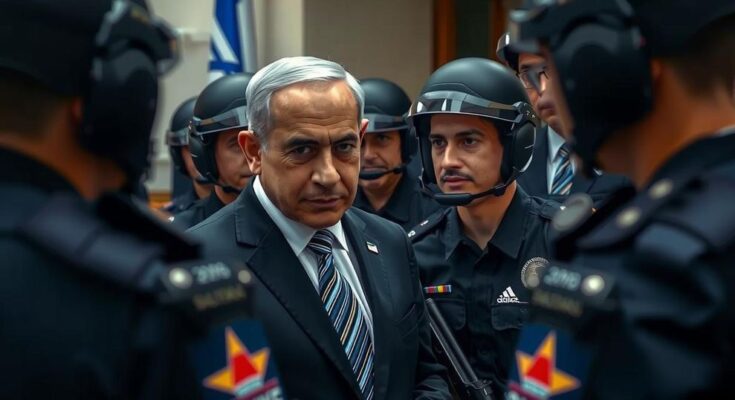The attempt on Netanyahu’s life through a drone strike underscores Hezbollah and Iran’s enhanced capabilities and is likely to redefine Israel’s military strategy in Lebanon and its interactions with Iran amidst ongoing tensions and hostage situations in the region.
The recent drone strike targeting the residence of Israeli Prime Minister Benjamin Netanyahu serves as a stark reminder of the escalating tensions in the Middle East. This incident, reportedly orchestrated by Hezbollah with possible assistance from Iran, illustrates the advanced intelligence and operational capabilities of these entities. The strike occurred in Caesarea, and while it caused damage to the Prime Minister’s property, its ramifications extend beyond physical damage. This situation may significantly influence Israel’s strategic decision-making regarding both its operations in Lebanon and its broader stance towards Iran. The drone’s proximity to Netanyahu’s home raises serious concerns about the security of Israeli leaders, as well as the effectiveness of current protective measures. Moreover, the assassination attempt cannot be viewed in isolation; it coincides with a volatile backdrop, including ongoing negotiations surrounding the potential exchange of hostages held by militant organizations. As tensions mount, analysts are cautious in predicting the immediate impact of these events on cease-fire negotiations. The death of Hamas leader Yehya Sinwar complicates matters further, as it may alter dynamics and expectations among all parties involved in the conflict. Thus, the region stands on a precipice, with potential repercussions for Israel and its policies towards its neighbors.
The Middle East has long been characterized by intricate geopolitical dynamics, where state and non-state actors exert considerable influence. Iran and Hezbollah have been historically aligned against Israeli interests, leveraging sophisticated technology and intelligence capabilities to challenge Israel militarily and politically. Netanyahu’s tenure has been marked by persistent conflicts with Hamas and Hezbollah, which further complicates peace efforts and regional stability. Recent hostilities have introduced new variables, including hostage crises and leadership changes within militant groups, making diplomatic resolutions increasingly challenging.
In light of the assassination attempt on Prime Minister Netanyahu, Israel’s approach towards both Lebanon and Iran is likely to evolve. The proactive nature of Hezbollah, combined with Iran’s backing, raises the stakes for Israel, prompting a reassessment of security strategies and military engagements. As the region braces for a potentially tumultuous period, the geopolitical landscape could see significant shifts depending on how Israel responds to these provocations.
Original Source: www.haaretz.com




